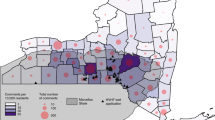Abstract
Germany was the first major country to commit itself to an electricity system transition based on decentralized renewable sources and energy efficiency. This experiment has attracted interest worldwide, but its influence on national energy debates is largely unknown. We study how the German transition appeared in the news media of three countries following alternative nuclear pathways—the United Kingdom, Finland and Hungary—between 2011 and 2015. We show that most discussions are techno-economic, supply-oriented and focused on nuclear, wind and solar energy. Key issues such as energy democracy, regional development, participation, demand-side measures, and bioenergy are neglected. We find that topics are detached from their original contexts and selectively contextualized elsewhere, resulting in very different pictures of the same transition in specific countries and news sources. The ‘Energiewende’ has become part of the international energy policy landscape, but its representation depends on local visions of a good society.
This is a preview of subscription content, access via your institution
Access options
Access Nature and 54 other Nature Portfolio journals
Get Nature+, our best-value online-access subscription
$29.99 / 30 days
cancel any time
Subscribe to this journal
Receive 12 digital issues and online access to articles
$119.00 per year
only $9.92 per issue
Buy this article
- Purchase on Springer Link
- Instant access to full article PDF
Prices may be subject to local taxes which are calculated during checkout

Similar content being viewed by others
Data availability
All articles analysed in this study are available through the news provider databases. Access to the databases of The Guardian, The Times and Helsingin Sanomat is subject to subscription. Data are available from the authors upon reasonable request.
References
Renn, O. & Marshall, J. P. Coal, nuclear and renewable energy policies in Germany: from the 1950s to the ‘Energiewende’. Energy Policy 99, 224–232 (2016).
Jacobsson, S. & Lauber, V. The politics and policy of energy system transformation—explaining the German diffusion of renewable energy technology. Energy Policy 34, 256–276 (2006).
Leipprand, A., Flachsland, C. & Pahle, M. Energy transition on the rise: discourses on energy future in the German parliament. Innov. Eur. J. Soc. Sci. Res. 30, 283–305 (2017).
Schmid, E., Knopf, B. & Pechan, A. Putting an energy system transformation into practice: the case of the German Energiewende. Energy Res. Soc. Sci. 11, 263–275 (2016).
Geels, F. W. et al. The enactment of socio-technical transition pathways: a reformulated typology and a comparative multi-level analysis of the German and UK low-carbon electricity transitions (1990–2014). Res. Policy 45, 896–913 (2016).
Strunz, S. The German energy transition as a regime shift. Ecol. Econ. 100, 150–158 (2014).
Cherp, A., Vinichenko, V., Jewell, J., Suzuki, M. & Antal, M. Comparing electricity transitions: a historical analysis of nuclear, wind and solar power in Germany and Japan. Energy Policy 101, 612–628 (2018).
Geels, F. W. & Schot, J. Typology of sociotechnical transition pathways. Res. Policy 36, 399–417 (2007).
Geels, F. W., Sovacool, B. K., Schwanen, T. & Sorrell, S. Sociotechnical transitions for deep decarbonization. Science 357, 1242–1244 (2017).
Hermwille, L. The role of narratives in socio-technical transitions—Fukushima and the energy regimes of Japan, Germany, and the United Kingdom. Energy Res. Soc. Sci. 11, 237–246 (2016).
Geels, F. W. The multi-level perspective on sustainability transitions: responses to seven criticisms. Environ. Innov. Soc. Transitions 1, 24–40 (2011).
The Observatory of Economic Complexity (OEC, accessed 28 February 2018); https://atlas.media.mit.edu/en/
Kivimaa, P. & Mickwitz, P. Public policy as a part of transforming energy systems: framing bioenergy in Finnish energy policy. J. Clean. Prod. 19, 1812–1821 (2011).
Electricity Production, Consumption and Market Overview—Statistics Explained (Eurostat, accessed 28February 2018); http://ec.europa.eu/eurostat/statistics-explained/index.php/Electricity_production,_consumption_and_market_overview.
2050 Low-carbon Economy (European Commission, accessed 28 February 2018); https://ec.europa.eu/clima/policies/strategies/2050_en
Kern, F., Kuzemko, C. & Mitchell, C. Measuring and explaining policy paradigm change: the case of UK energy policy. Policy Polit. 42, 513–530 (2014).
Teräväinen, T. Representations of energy policy and technology in British and Finnish newspaper media: a comparative perspective. Public Underst. Sci. 23, 299–315 (2014).
Carvalho, A. Ideological cultures and media discourses on scientific knowledge: re-reading news on climate change. Public Underst. Sci. 16, 223–243 (2007).
Teräväinen, T., Lehtonen, M. & Martiskainen, M. Climate change, energy security, and risk-debating nuclear new build in Finland, France and the UK. Energy Policy 39, 3434–3442 (2011).
Antal, M. Energy transition on the periphery: the case of solar, wind and nuclear electricity in Hungary. Proc. 12th Conf. European Society for Ecological Economics, 66–67 (ESEE, 2017); http://esee2017budapest.org/wp-content/uploads/2016/06/ESEE-2017-Proceedings-1.pdf
Forsyth, T. & Levidow, L. An ontological politics of comparative environmental analysis: the green economy and local diversity. Glob. Environ. Politics 15, 140–151 (2015).
Skjolsvold, T. M. Curb your enthusiasm: on media communication of bioenergy and the role of the news media in technology diffusion. Environ. Commun. 6, 512–531 (2012).
Heiskanen, E., Kivisaari, S., Lovio, R. & Mickwitz, P. Designed to travel? Transition management encounters environmental and innovation policy histories in Finland. Policy Sci. 42, 409–427 (2009).
Jasanoff, S. Designs on Nature: Science and Democracy in Europe and the United States (Princeton Univ. Press, Princeton, 2007).
Rosenbloom, D., Berton, H. & Meadowcroft, J. Framing the Sun: a discursive approach to understanding multi-dimensional interactions within socio-technical transitions through the case of solar electricity in Ontario, Canada. Res. Policy 45, 1275–1290 (2016).
Smith, A., Kern, F., Raven, R., & Verhees, B. Spaces for sustainable innovation: solar photovoltaic electricity in the UK. Technol. Forecast. Soc. Change 81, 115–130 (2014).
Raven, R., Kern, F., Verhees, B. & Smith, A. Niche construction and empowerment through socio-political work. A meta-analysis of six low-carbon technology cases. Environ. Innov. Soc. Transitions 18, 164–180 (2016).
Joas, F., Pahle, M., Flachsland, C. & Joas, A. Which goals are driving the Energiewende? Making sense of the German energy transformation. Energy Policy 95, 42–51 (2016).
Holstenkamp, L. & Kahla, F. What are community energy companies trying to accomplish? An empirical investigation of investment motives in the German case. Energy Policy 97, 112–122 (2016).
Wilson, C., Grubler, A., Gallagher, K. S. & Nemet, G. F. Marginalization of end-use technologies in energy innovation for climate protection. Nat. Clim. Change 2, 780–788 (2012).
Torrijos, M. State of development of biogas production in Europe. Proc. Environ. Sci. 35, 881–889 (2016).
Leidreiter, A. A global shift to 100% renewables is not just cleaner—it’s about equality. Communities in Germany, Canada and Uganda are already reaping the benefits of moving away from fossil fuels to more decentralised energy systems. The Guardian (4 November 2015).
Harvey, F. Balcombe balks at tax changes for community green-energy projects; village which brought fracking to public attention fears changes to tax relief will thwart efforts to spread solar energy use. The Guardian (29 January 2015).
Webb, T. Don’t blame us for rise in charges, says Npower. The Times (15 November 2013).
Pagnamenta, R. Electricity costs are ‘crippling’ UK industry? Steelmakers demand help to stop Europe surging ahead? Administrators race to save 1,700 jobs as crisis deepens. The Times (21 October 2015).
Webb, T. Energy future is in the wind. The Times (3 July 2013).
Peltomaa, J. & Kolehmainen, J. Ten years of bioeconomy in the Finnish media. Alue ja Ympäristö 46, 57–63 (2017).
Rajamäki, T. Energian mallimaa Saksa on lisännyt hiilenpolttoa. Helsingin Sanomat (14 April 2014).
Berner, A.-S. Vallankumouksen esteet. Helsingin Sanomat (12 December 2011).
Berner, A.-S. Kyllä minun takapihalleni. Helsingin Sanomat (10 June 2012).
MTI. Drága mulatság a környezettudatosság. Index (20 September 2013); https://index.hu/tudomany/2013/09/20/draga_mulatsag_a_kornyezettudatossag/
Sipos, G. A tiszta és olcsó árammal indokolja a kormányzat a paksi bővítést. Origo (27 December 2011); http://www.origo.hu/idojaras/20111220-nem-engedheti-meg-maganak-az-atomstopot-magyarorszag-interju-a.html
Sipos, G. Megdobnák a villanyszámlát az új paksi reaktorok. Origo (13 December 2013); http://www.origo.hu/kornyezet/20131213-dragabb-aram-paks-atomeromu-fejlesztes-energiapolitika-csak-a-villanyszamlat-novelne-a-paksi.html
Eurologus. Paks: kódolva vannak a konfliktusok az EU-val (22 January 2014); https://index.hu/kulfold/eurologus/2014/01/22/paks_az_europai_energiapolitika_szemszogebol/
Jenei, M. Áramszünetek lesznek, ha nem csinálunk semmit (18 September 2015); https://index.hu/gazdasag/2015/09/18/aszodi_attila_interju/
Oels, A. Rendering climate change governable: from biopower to advanced liberal government? J. Environ. Policy Plan. 7, 185–207 (2005).
Nyugat.hu. A. Népszabadság kétszer annyi példányszámban kelt el, mint a Magyar Nemzet (10 September 2016); https://www.nyugat.hu/tartalom/cikk/politikai_lapok_nepszabadsag_peldanyszam_matesz
Acknowledgements
The work of M.A. was supported by the National Research, Development and Innovation Office of Hungary (grant no. OTKA-PD 116638). K.K. acknowledges funding support from the Academy of Finland (grant no. 284972) and Fulbright Finland. We thank S. Drews, K. Isoaho, E. Heiskanen, N. Honkela, J. Hukkinen, J. Marquardt and the Harvard Science, Technology and Society Program for comments on the manuscript.
Author information
Authors and Affiliations
Contributions
M.A. and K.K. designed and conducted the study together. M.A. analysed the material for the United Kingdom and Hungary. K.K. analysed the material for Finland. M.A. and K.K. wrote the paper together.
Corresponding author
Ethics declarations
Competing interests
The authors declare no competing interests.
Additional information
Publisher’s note: Springer Nature remains neutral with regard to jurisdictional claims in published maps and institutional affiliations.
Supplementary information
Supplementary Information
Supplementary Notes 1–2, Supplementary Figure 1, Supplementary Tables 1–3
Rights and permissions
About this article
Cite this article
Antal, M., Karhunmaa, K. The German energy transition in the British, Finnish and Hungarian news media. Nat Energy 3, 994–1001 (2018). https://doi.org/10.1038/s41560-018-0248-3
Received:
Accepted:
Published:
Issue Date:
DOI: https://doi.org/10.1038/s41560-018-0248-3
This article is cited by
-
The evolution of ideas in global climate policy
Nature Climate Change (2020)
-
Visions of energy futures
Nature Energy (2018)



